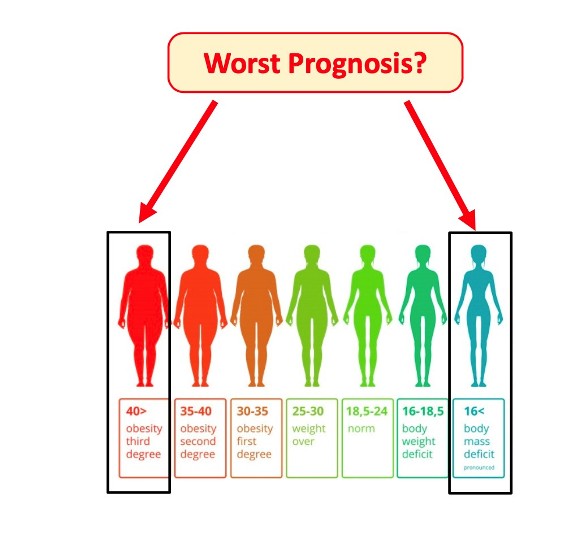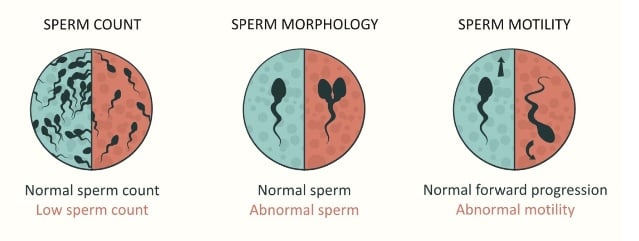
You may think you learned about this in your middle school sex ED class. So why then are so many couples having a hard time getting pregnant?
Infertility rates are on the rise affecting around 11% of reproductive age populations and 25% of these couples have more than one contributing factor.
Why the rise in Infertility?
Has the female anatomy transformed over the years?
Is the sperm not what it used to be?
Actually… yes!
There are structural as well as cellular changes occurring in the male and female body which contribute to infertility. Often these adverse effects on the body are the direct result of how we are living our lives.
The Outside Environment is Affecting Women’s Internal Systems:
Polycystic Ovarian Syndrome (PCOS) affects between 6-15 % of women of childbearing age. It is fundamentally driven by insulin resistance which is a condition related to blood sugar dysregulation. By changing our diet and adding targeted nutritional compounds that support these imbalanced cellular processes, PCOS can be managed.
Fibroids, especially the submucosal type, can interfere with proper endometrial implantation of a newly fertilized egg. Risk factors such as age, gender, and genetics cannot be controlled but proper nutrition, weight loss, balancing hormones, and avoiding certain toxins CAN. Each of these are variables can be controlled by how we live our lives and what we put in our body.
Endometriosis occurs when pieces of the tissue that line the uterus grow on other pelvic organs, such as the ovaries or fallopian tubes. This results in anatomical changes in the female reproductive anatomy making it difficult to become pregnant.
Research1 has shown that getting in vegetables, antioxidant vitamins, B-group vitamins, dairy products rich in calcium and vitamin D, fish oils, and omega-3 fatty acids may lower the risk of developing this condition. On the other hand, trans fats and alcohol may increase the risk for endometriosis.
Anovulation or irregular cycles accounts for about 25% of infertility causes: The female body has a carefully orchestrated monthly rhythm. When this rhythm is not in sync and the right signals are not produced, ovulation will NOT occur. Below are factors contributing to anovulation:

Image credit Kharrazian Institute
- Body Mass Index- BMI that is too high OR too low affects ovulation (see chart)
- PCOS
- Hyperprolactemia
-
Hypothyroidism: This may be an overlooked condition especially in a healthier childbearing population. If this is found to be a factor in infertility, it will be important to then determine whether there is an underlying autoimmune process or possible nutritional deficiencies as the cause.
- Endocrine Disrupting Chemicals such as Heavy metals, Pesticides, PCBs and Parabens
The Outside Environment is Affecting Men’s HEALTH:
Oxidative Stress: Similar to women, toxic substances such as pesticides, heavy metals and pollutants can have harmful effects on reproductive cells and tissues. Cigarette and marijuana smoking, illicit drugs, and radioactive exposures (cell phones, Wi-Fi, microwaves and laptops) are common examples that may sometimes get overlooked.

Image credit Kharrazian Institute
Lifestyle Factors such as a diet high in processed meats, sodas, and trans fats and low in antioxidant rich fruits and vegetables, essential fatty acids and fiber can also have a negative impact on sperm health.
Hypothyroidism can impair spermatogenesis or the formation of sperm, contribute to erectile dysfunction and decrease libido - all impacting male fertility.
Aromatization and Insulin: Insulin resistance in men can lead to higher estrogen production which ultimately lowers the available testosterone.
Obesity has many adverse effects on male fertility. The inflammatory adipose tissue can impair sperm development. There are vascular changes that can lead to erectile dysfunction. The excess body fat stores toxins and endocrine disruptors that alter proper hormonal signaling.
Final Thoughts
For some, getting pregnant is as easy as you learned in school. But for many others, there are factors that may be making it more difficult to conceive. The good news is, these barriers can be managed by making specific lifestyle changes and adding the right nutritional compounds based on where your imbalances and deficiencies lay.
It’s never too early to begin preparing your body for pregnancy, especially if you have already been diagnosed with any of the conditions discussed above. Take a Functional Medicine approach to Fertility and your health- and let’s get you started on this wonderful journey towards Parenthood.
1 Influence of diet on the risk of developing endometriosis; Review/ Gyndecology; 2017, vol. 88, no. 2, 96–102; Joanna Jurkiewicz-Przondziono, Magdalena Lemm, Anna Kwiatkowska-Pamuła, Ewa Ziółko, Mariusz K. Wójtowicz
 Dr. Denia Tapscott, M.D., is board certified in internal medicine and provides personalized treatment with a functional medicine approach to get to the root cause of issues and begin the journey towards wellness. Her areas of interest include: Functional Medicine, Adult Holistic Primary Care, Infertilty, Obesity Medicine and Weight Loss, Cardiovascular Disease, Diabetes Prevention & Metabolic Syndrome, Chronic Disease Management, Pre and Post Bariatric Surgery Care and Diet and Lifestyle care.
Dr. Denia Tapscott, M.D., is board certified in internal medicine and provides personalized treatment with a functional medicine approach to get to the root cause of issues and begin the journey towards wellness. Her areas of interest include: Functional Medicine, Adult Holistic Primary Care, Infertilty, Obesity Medicine and Weight Loss, Cardiovascular Disease, Diabetes Prevention & Metabolic Syndrome, Chronic Disease Management, Pre and Post Bariatric Surgery Care and Diet and Lifestyle care.
More from this author
4 Lab Tests to Assess Your TRUE Cardiovascular Risk
.png?width=305&height=132&name=NIHAlogoBLUE_3_transparent%20(2).png)

